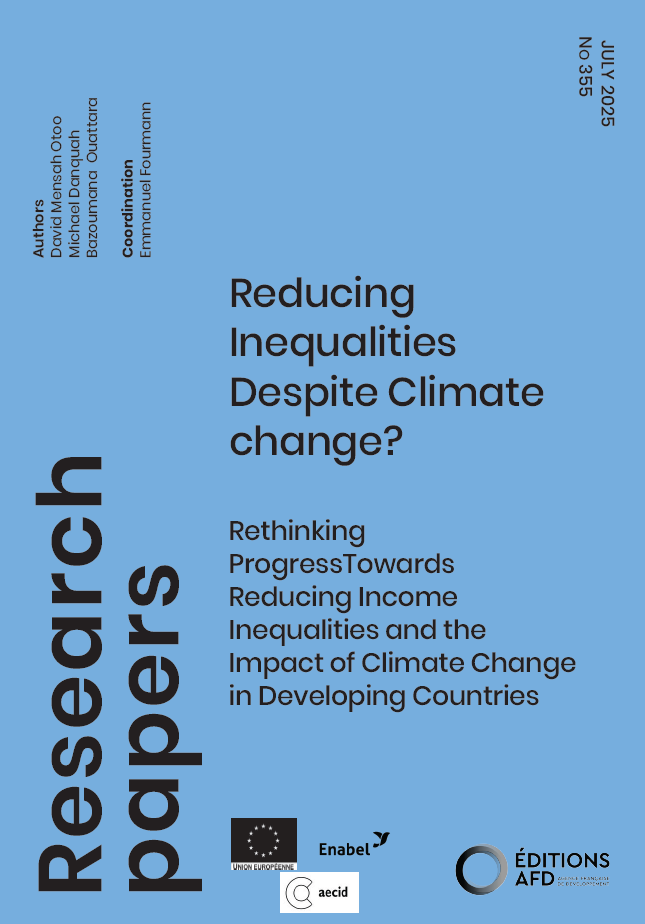Share the page
Reducing Inequalities Despite Climate change? Rethinking Progress Towards Reducing Income Inequalities and the Impact of Climate Change in Developing Countries
Published on

This multicountry study incorporate the economic resources of countries and measure how countries are combining their resources to reduce income inequality. It also examine the effects of climate — temperature and rainfall — on effort by countries to reduce income inequality. It uses an unbalanced panel of 160 countries from 1990 to 2020, and Stochastic Frontier Analysis (SFA) for this exercise. Among the conclusions, countries have exerted only 50 percent on average of their effort, in reducing income inequality, but this effort differs from region to region. Sub Saharan Africa (SSA) recorded the least average effort of 39 percent, albeit this varies across countries. This is an indication that the potential and scope for improvement to reduce income inequality differs across SSA countries. The findings show that introducing temperature and precipitation in the frontier model reduced the effort of countries in several regions. This implies the negative effects of climate as countries combine their economic resources to reduce income inequality. The direct effect of climate on countries’ efforts to reduce inequality shows that both temperature and rainfall decrease the effort for developing countries. In the SSA sample, the negative effect of temperature on effort was significant whilst that of rainfall was negligible.
Useful Information
-
Authors
-
David Mensah Otoo, Michael Danquah, Bazoumana Ouattara
-
Coordinators
-
Edition
-
355
-
Page number
-
35
-
ISSN
-
2492 - 2846
-
Collection
-
Research Papers
-
Languages
-
English
